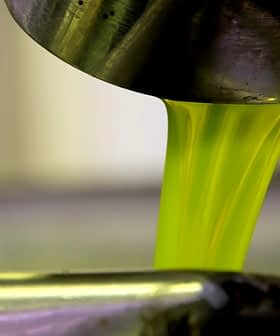Comparing the Lipid-Lowering Effect of EVOO and Statins in Type 2 Diabetes
Daily consumption of extra virgin olive oil improves cholesterol without the side effects associated with statins.
A new study compared the efficacy of extra virgin olive oil (EVOO) and a statin drug in lowering lipids in people with type 2 diabetes. While the medication reduced lipids somewhat more than EVOO, it comes with a host of side effects, some of which are serious. Conversely, EVOO has an array of side benefits, such as lowering blood pressure and preventing blood clots, both of which can help prevent heart disease.
As inflammation plays a role in the development of heart disease and many other chronic illnesses, the daily intake of olive oil can help prevent these conditions.
Diabetes mellitus often causes abnormal lipid levels called dyslipidemia, a condition that consists of raised levels of triglycerides, total cholesterol and low-density lipoprotein (LDL), known as bad cholesterol. The abnormality also involves low levels of high-density lipoprotein (HDL), known as good cholesterol. This adverse effect on lipids can lead to microvascular complications of diabetes like neuropathy and retinopathy.
People with dyslipidemia frequently have triglyceride levels higher than 200mg/dL, total cholesterol greater than 200mg/dL, and LDL levels above 130mg/dL. Their HDL levels are often lower than 40mg/dL in men and 50mg/dL in women. These readings are significant because an elevated LDL increases the risk of coronary heart disease, while an elevated HDL reduces the risk.
Statins are commonly prescribed to decrease lipids in patients with dyslipidemia, and one of the most popular is atorvastatin. Unfortunately, statins cause muscle pain, liver damage and other health problems.
EVOO has properties that improve cholesterol without any of the adverse reactions associated with statins. It lowers triglycerides, total cholesterol and LDL as well as raises HDL. These benefits are thought to be due to the oil’s content of monosaturated fats and antioxidants, food constituents that help prevent clogged arteries.
In the new randomized controlled clinical trial published in the Journal of Ayub Medical College, Abbottabad, researchers compared the effects of atorvastatin and EVOO on cholesterol. They divided a group of 60 patients with type 2 diabetes and dyslipidemia into two groups; one of which took 40 mg of atorvastatin per day and the other of which took two tablespoons of EVOO per day.
Among those who took the atorvastatin, the mean differences in triglycerides, total cholesterol, LDL and HDL were 104, 110, 67, and 4 respectively. In those who took the EVOO, the values were 46, 43, 31 and 3. These findings revealed that atorvastatin lowered triglycerides, total cholesterol and LDL by 20 to 40 percent, while the EVOO lowered these parameters by 14 to 25 percent. In addition, the atorvastatin increased HDL levels by 9 to 16 percent, and EVOO increased them by 8 to 12 percent.
Do statins really save lives and is cholesterol really a threat to health? Jonny Bowden, board-certified nutritionist and co-author of The Great Cholesterol Myth, tells Olive Oil Times that these widespread beliefs are in error.
“Statins have enormous side effects and they are greatly underreported. Moreover, data from studies doesn’t provide evidence that the medications protect against heart disease and prolong life.
“On the other hand, olive oil is immensely healthful. It has anti-inflammatory properties, a benefit that is important for many body functions. As inflammation plays a role in the development of heart disease and many other chronic illnesses, the daily intake of olive oil can help prevent these conditions.
“Another common view that recent studies have proven wrong is that lowering cholesterol is synonymous with reducing the risk of heart disease. Peer-reviewed research shows no association of saturated fat with the malady. In fact, in a Framingham study, people with the highest cholesterol lived the longest.”








